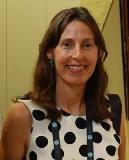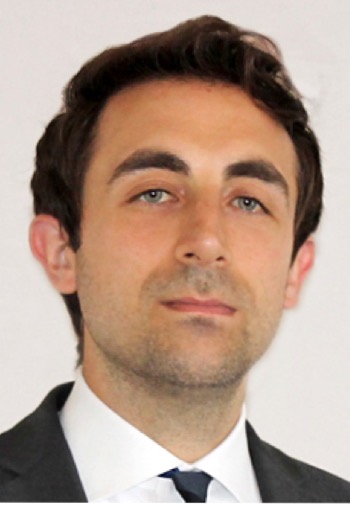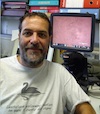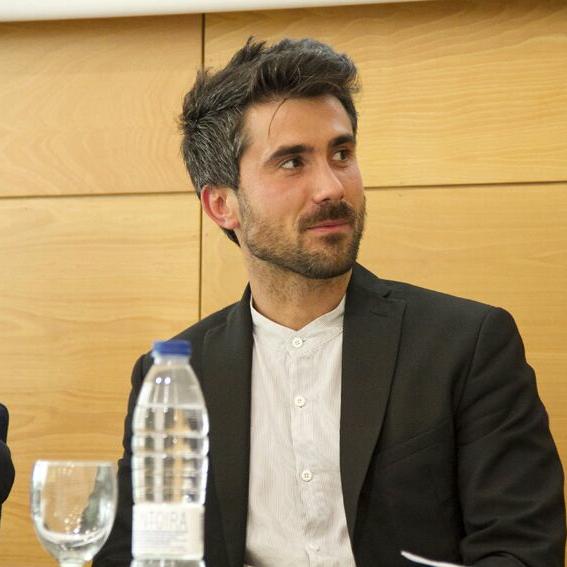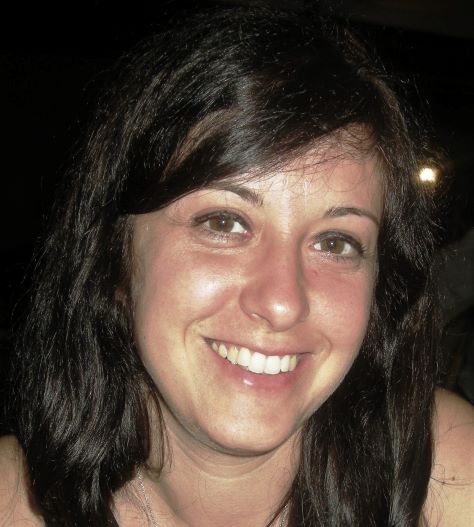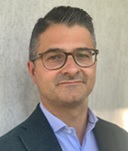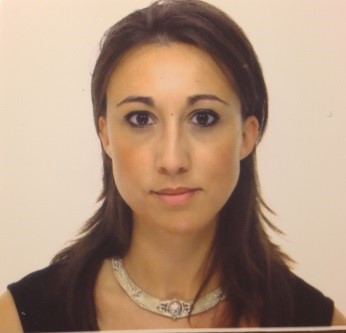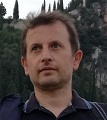Studying at the University of Verona
Here you can find information on the organisational aspects of the Programme, lecture timetables, learning activities and useful contact details for your time at the University, from enrolment to graduation.
Academic calendar
The academic calendar shows the deadlines and scheduled events that are relevant to students, teaching and technical-administrative staff of the University. Public holidays and University closures are also indicated. The academic year normally begins on 1 October each year and ends on 30 September of the following year.
Course calendar
The Academic Calendar sets out the degree programme lecture and exam timetables, as well as the relevant university closure dates..
| Period | From | To |
|---|---|---|
| Semester 1 | Oct 2, 2023 | Jan 26, 2024 |
| Semester 2 | Mar 4, 2024 | Jun 14, 2024 |
| Session | From | To |
|---|---|---|
| Winter exam session | Jan 29, 2024 | Mar 1, 2024 |
| Summer exam session | Jun 17, 2024 | Jul 31, 2024 |
| Autumn exam session | Sep 2, 2024 | Sep 30, 2024 |
| Session | From | To |
|---|---|---|
| Summer graduation session | Jul 17, 2024 | Jul 17, 2024 |
| Autumn graduation session | Oct 16, 2024 | Oct 16, 2024 |
| Winter graduation session | Mar 24, 2025 | Mar 24, 2025 |
| Period | From | To |
|---|---|---|
| Festa di Ognissanti | Nov 1, 2023 | Nov 1, 2023 |
| Festa dell'Immacolata | Dec 8, 2023 | Dec 8, 2023 |
| Vacanze di Natale | Dec 24, 2023 | Jan 7, 2024 |
| Festività pasquali | Mar 29, 2024 | Apr 1, 2024 |
| Ponte della Festa della Liberazione | Apr 25, 2024 | Apr 26, 2024 |
| Festa del Lavoro | May 1, 2024 | May 1, 2024 |
| Festività del Santo Patrono: San Zeno | May 21, 2024 | May 21, 2024 |
| Festa della Repubblica | Jun 2, 2024 | Jun 2, 2024 |
| Vacanze estive | Aug 12, 2024 | Aug 17, 2024 |
Exam calendar
Exam dates and rounds are managed by the relevant Science and Engineering Teaching and Student Services Unit.
To view all the exam sessions available, please use the Exam dashboard on ESSE3.
If you forgot your login details or have problems logging in, please contact the relevant IT HelpDesk, or check the login details recovery web page.
Should you have any doubts or questions, please check the Enrollment FAQs
Academic staff
 bernardo.calabrese@univr.it
bernardo.calabrese@univr.it
 mimimorena.seggio@univr.it
mimimorena.seggio@univr.it
 claudio.tomazzoli@univr.it
claudio.tomazzoli@univr.it
Study Plan
The Study Plan includes all modules, teaching and learning activities that each student will need to undertake during their time at the University.
Please select your Study Plan based on your enrollment year.
1° Year
| Modules | Credits | TAF | SSD |
|---|
1 module among the following1 module among the following1 module between the following1 module among the following1 module between the following2° Year It will be activated in the A.Y. 2024/2025
| Modules | Credits | TAF | SSD |
|---|
1 module between the following1 module between the following1 module among the following| Modules | Credits | TAF | SSD |
|---|
1 module among the following1 module among the following1 module between the following1 module among the following1 module between the following| Modules | Credits | TAF | SSD |
|---|
1 module between the following1 module between the following1 module among the following| Modules | Credits | TAF | SSD |
|---|
1 module among the followingLegend | Type of training activity (TTA)
TAF (Type of Educational Activity) All courses and activities are classified into different types of educational activities, indicated by a letter.
Biological Treatment of Wastewater (2023/2024)
Teaching code
4S008283
Credits
6
Language
Italian
Scientific Disciplinary Sector (SSD)
ING-IND/25 - CHEMICAL PLANTS
Courses Single
Authorized with reserve
The teaching is organized as follows:
TEORIA
ESERCITAZIONI
Learning objectives
The course aims to provide knowledges of conventional and advance biological processes for the treatment of waste and wastewater from different origin (agro-industrial, municipal, industrial). During the course will be provided the knowledge aiming the design conventional biological and advanced operation units to treat and/or valorize wastewater from municipal or industrial wastewater and sewage sludge.
Prerequisites and basic notions
Knowledge learned in general and inorganic chemistry, organic chemistry and physics courses.
Program
-Wastewater characterization and main chemical/physical parameters;
-Respirometric techniques for COD fractionation and evaluation of kinetic constants;
- Bioreactors applied to wastewater treatment (continuous and discontinuous) and equations;
- Operational units in physical, chemical, biological and advanced treatments;
- Design in physical and chemical treatments. Flow metering, screening, desanding, equalization, mixing, primary sedimentation, chemical precipitation, disinfection with chlorine compounds, post-areation, odor control.
- Design in biological treatments. Activated sludge processes, attached and suspended mass reactors.
-Design in advanced treatments. Biological nitrogen removal; nitrification; denitrification. Biological removal of phosphorus. Combined biological removal of nitrogen and phosphorus. Removal of phosphorus by chemical means.
Bibliography
Didactic methods
The course includes in-presence lessons
Learning assessment procedures
Attending and non-attending candidates will have to take an oral test focusing on the topics covered during the course. During the exam, the candidate will present a technical report concerning the design of an activated sludge process and monitoring methods for the biological process.
Evaluation criteria
Degree of project thoroughness, adequacy of calculation methods, and consistency of answers to theoretical questions.
Criteria for the composition of the final grade
The technical report will be evaluated up to a maximum of 15 out of 30. The answers to the theoretical questions will be graded up to a maximum of 15 out of 30. The final grade will be equal to the sum of the two scores obtained.
Exam language
Italiana
Sustainable Development Goals - SDGs
This initiative contributes to the achievement of the Sustainable Development Goals of the UN Agenda 2030. More information on sustainability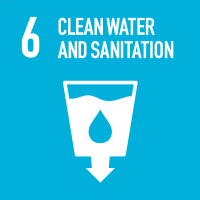
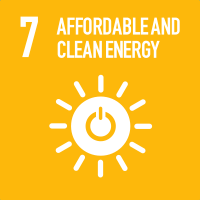

Type D and Type F activities
Le attività formative di tipologia D sono a scelta dello studente, quelle di tipologia F sono ulteriori conoscenze utili all’inserimento nel mondo del lavoro (tirocini, competenze trasversali, project works, ecc.). In base al Regolamento Didattico del Corso, alcune attività possono essere scelte e inserite autonomamente a libretto, altre devono essere approvate da apposita commissione per verificarne la coerenza con il piano di studio. Le attività formative di tipologia D o F possono essere ricoperte dalle seguenti attività.
1. Insegnamenti impartiti presso l'Università di Verona
Comprendono gli insegnamenti sotto riportati e/o nel Catalogo degli insegnamenti (che può essere filtrato anche per lingua di erogazione tramite la Ricerca avanzata).
Modalità di inserimento a libretto: se l'insegnamento è compreso tra quelli sottoelencati, lo studente può inserirlo autonomamente durante il periodo in cui il piano di studi è aperto; in caso contrario, lo studente deve fare richiesta alla Segreteria, inviando a carriere.scienze@ateneo.univr.it il modulo nel periodo indicato.
2. Attestato o equipollenza linguistica CLA
Oltre a quelle richieste dal piano di studi, per gli immatricolati dall'A.A. 2021/2022 vengono riconosciute:
- Lingua inglese: vengono riconosciuti 3 CFU per ogni livello di competenza superiore a quello richiesto dal corso di studio (se non già riconosciuto nel ciclo di studi precedente).
- Altre lingue e italiano per stranieri: vengono riconosciuti 3 CFU per ogni livello di competenza a partire da A2 (se non già riconosciuto nel ciclo di studi precedente).
Tali cfu saranno riconosciuti, fino ad un massimo di 6 cfu complessivi, di tipologia F se il piano didattico lo consente, oppure di tipologia D. Ulteriori crediti a scelta per conoscenze linguistiche potranno essere riconosciuti solo se coerenti con il progetto formativo dello studente e se adeguatamente motivati.
Gli immatricolati fino all'A.A. 2020/2021 devono consultare le informazioni che si trovano qui.
Modalità di inserimento a libretto: richiedere l’attestato o l'equipollenza al CLA e inviarlo alla Segreteria Studenti - Carriere per l’inserimento dell’esame in carriera, tramite mail: carriere.scienze@ateneo.univr.it
Attenzione: agli studenti, che hanno conseguito il livello B2 d’inglese nelle loro carriere triennali, si sottolinea la necessità di sostituire il livello B2 d’inglese completo, previsto dal piano didattico, con il livello C1 informatizzato d’inglese oppure di acquisire altra competenza linguistica in una lingua comunitaria almeno di livello B1 completo.
3. Competenze trasversali
Scopri i percorsi formativi promossi dal TALC - Teaching and learning center dell'Ateneo, destinati agli studenti regolarmente iscritti all'anno accademico di erogazione del corso https://talc.univr.it/it/competenze-trasversali
Modalità di inserimento a libretto: non è previsto l'inserimento dell'insegnamento nel piano di studi. Solo in seguito all'ottenimento dell'Open Badge verranno automaticamente convalidati i CFU a libretto. La registrazione dei CFU in carriera non è istantanea, ma ci saranno da attendere dei tempi tecnici.
4. CONTAMINATION LAB
Il Contamination Lab Verona (CLab Verona) è un percorso esperienziale con moduli dedicati all'innovazione e alla cultura d'impresa che offre la possibilità di lavorare in team con studenti e studentesse di tutti i corsi di studio per risolvere sfide lanciate da aziende ed enti. Il percorso permette di ricevere 6 CFU in ambito D o F. Scopri le sfide: https://www.univr.it/clabverona
ATTENZIONE: Per essere ammessi a sostenere una qualsiasi attività didattica, incluse quelle a scelta, è necessario essere iscritti all'anno di corso in cui essa viene offerta. Si raccomanda, pertanto, ai laureandi delle sessioni di dicembre e aprile di NON svolgere attività extracurriculari del nuovo anno accademico, cui loro non risultano iscritti, essendo tali sessioni di laurea con validità riferita all'anno accademico precedente. Quindi, per attività svolte in un anno accademico cui non si è iscritti, non si potrà dar luogo a riconoscimento di CFU.
5. Periodo di stage/tirocinio
Oltre ai CFU previsti dal piano di studi (verificare attentamente quanto indicato sul Regolamento Didattico): qui informazioni su come attivare lo stage.
Verificare nel regolamento quali attività possono essere di tipologia D e quali di tipologia F.
Insegnamenti e altre attività che si possono inserire autonomamente a libretto
| years | Modules | TAF | Teacher |
|---|---|---|---|
| 1° 2° | Python programming language | D |
Carlo Combi
(Coordinator)
|
Career prospects
Module/Programme news
News for students
There you will find information, resources and services useful during your time at the University (Student’s exam record, your study plan on ESSE3, Distance Learning courses, university email account, office forms, administrative procedures, etc.). You can log into MyUnivr with your GIA login details: only in this way will you be able to receive notification of all the notices from your teachers and your secretariat via email and soon also via the Univr app.
Graduation
Deadlines and administrative fulfilments
For deadlines, administrative fulfilments and notices on graduation sessions, please refer to the Graduation Sessions - Science and Engineering service.
Need to activate a thesis internship
For thesis-related internships, it is not always necessary to activate an internship through the Internship Office. For further information, please consult the dedicated document, which can be found in the 'Documents' section of the Internships and work orientation - Science e Engineering service.
Final examination regulations
List of theses and work experience proposals
| theses proposals | Research area |
|---|---|
| Valutazione dell'applicazione di nanoparticelle biogeniche per il controllo del cancro batterico del kiwi | AGRICULTURE - AGRICULTURE |
| Valutazione dell'applicazione di nanoparticelle biogeniche per il controllo del cancro batterico del kiwi | APPLICATIONS OF LIFE SCIENCES - APPLICATIONS OF LIFE SCIENCES |
| Valorizzazione di scarti agroindustriali mediante fermentazione termofila per la produzione di acidi organici come precursori chimici di polimeri | Applied biotechnology (non-medical), bioreactors, applied microbiology - Applied biotechnology (non-medical), bioreactors, applied microbiology |
| Valutazione dell'applicazione di nanoparticelle biogeniche per il controllo del cancro batterico del kiwi | Applied biotechnology (non-medical), bioreactors, applied microbiology - Applied biotechnology (non-medical), bioreactors, applied microbiology |
| Immobilizzazione di enzimi d’interesse industriale su nanoparticelle biomimetiche magnetiche | Applied Life Sciences and Non-Medical Biotechnology: Applied plant and animal sciences; food sciences; forestry; industrial, environmental and non-medical biotechnologies, nanobiotechnology, bioengineering; synthetic and chemical biology; biomimetics; bioremediation - Biomimetics |
| Immobilizzazione di enzimi d’interesse industriale su nanoparticelle biomimetiche magnetiche | Applied Life Sciences and Non-Medical Biotechnology: Applied plant and animal sciences; food sciences; forestry; industrial, environmental and non-medical biotechnologies, nanobiotechnology, bioengineering; synthetic and chemical biology; biomimetics; bioremediation - Non-medical biotechnology and genetic engineering (including transgenic organisms, recombinant proteins, biosensors, bioreactors, microbiology) |
| Immobilizzazione di enzimi d’interesse industriale su nanoparticelle biomimetiche magnetiche | Chemical engineering, technical chemistry - Chemical engineering, technical chemistry |
| Effetto delle condizioni operative applicate al processo di digestione anaerobica su produzione di biogas e stabilità del carbonio organico del digestato | Earth System Science: Physical geography, geology, geophysics, atmospheric sciences, oceanography, climatology, cryology, ecology, global environmental change, biogeochemical cycles, natural resources management - Biogeochemistry, biogeochemical cycles, environmental chemistry |
| Influenza dalla variazione stagionale del feedstock sulla produzione di biogas e sulla stabilità del carbonio organico presente nel digestato prodotto | Earth System Science: Physical geography, geology, geophysics, atmospheric sciences, oceanography, climatology, cryology, ecology, global environmental change, biogeochemical cycles, natural resources management - Biogeochemistry, biogeochemical cycles, environmental chemistry |
| Studio dei pool di sostanza organica del suolo in permafrost antartici | Earth System Science: Physical geography, geology, geophysics, atmospheric sciences, oceanography, climatology, cryology, ecology, global environmental change, biogeochemical cycles, natural resources management - Biogeochemistry, biogeochemical cycles, environmental chemistry |
| Valorizzazione di scarti agroindustriali mediante fermentazione termofila per la produzione di acidi organici come precursori chimici di polimeri | Environmental biotechnology, bioremediation, biodegradation - Environmental biotechnology, bioremediation, biodegradation |
| Bilanci di massa e di materia in digestori anaerobici alimentati con residui agricoli e zootecnici. | Products and Processes Engineering: Product design, process design and control, construction methods, civil engineering, energy processes, material engineering - Chemical engineering, technical chemistry |
| Studio della composizione chimica e della stabilità termica di poliidrossialcanoati ottenuti da diverse matrici ambientali. | Products and Processes Engineering: Product design, process design and control, construction methods, civil engineering, energy processes, material engineering - Chemical engineering, technical chemistry |
| Valorizzazione di scarti agroindustriali mediante fermentazione termofila per la produzione di acidi organici come precursori chimici di polimeri | Products and Processes Engineering: Product design, process design and control, construction methods, civil engineering, energy processes, material engineering - Chemical engineering, technical chemistry |
| Immobilizzazione di enzimi d’interesse industriale su nanoparticelle biomimetiche magnetiche | Products and Processes Engineering: Product design, process design and control, construction methods, civil engineering, energy processes, material engineering - Materials engineering (metals, ceramics, polymers, composites, etc.) |
| Valorizzazione di scarti agroindustriali mediante fermentazione termofila per la produzione di acidi organici come precursori chimici di polimeri | Products and Processes Engineering: Product design, process design and control, construction methods, civil engineering, energy processes, material engineering - Production technology, process engineering |
| Studio delle proprietà di luminescenza di lantanidi in matrici proteiche | Synthetic Chemistry and Materials: Materials synthesis, structure-properties relations, functional and advanced materials, molecular architecture, organic chemistry - Colloid chemistry |
| Multifunctional organic-inorganic hybrid nanomaterials for applications in Biotechnology and Green Chemistry | Synthetic Chemistry and Materials: Materials synthesis, structure-properties relations, functional and advanced materials, molecular architecture, organic chemistry - New materials: oxides, alloys, composite, organic-inorganic hybrid, nanoparticles |
Attendance
As stated in the Teaching Regulations for the A.Y. 2022/2023, attendance is not mandatory. However, professors may require students to attend lectures for a minimum of hours in order to be able to take the module exam, in which case the methods that will be used to check attendance will be explained at the beginning of the module.
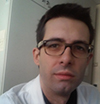
 045 802 7823
045 802 7823


